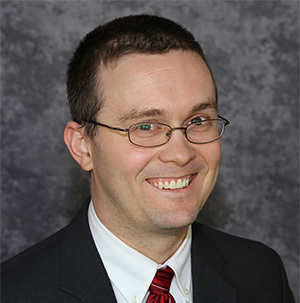"Designing Catalytic Materials on the Atomic Level for Sustainable Biomass Conversion," by Nicholas A. Brunelli

Abstract
Rapid consumption of energy and material resources demands that we identify more sustainable manufacturing processes. Sustainable processes inherently involve minimizing waste. Indeed, the key challenge is achieving highly active and selective catalytic materials for converting resources such as biomass. Our group develops precise synthetic methods to produce uniform and well-defined catalytic sites that enable elucidation of structure-function relationships. We are currently investigating methods to convert biomass into chemicals through developing heterogeneous catalytic materials for glucose isomerization to fructose and fructose dehydration to 5-hydroxymethylfurfural (HMF). Through tuning catalytic material design on the atomic level, we are able to establish structure-function relationships to create more active and selective catalysts. Overall, these new synthesis methods will help to create sustainable manufacturing processes to overcome challenges with catalytic selectivity.
Biography
Nicholas Brunelli is an Assistant Professor of Chemical and Biomolecular Engineering (CBE) at The Ohio State University. He received his undergraduate degree in CBE from Ohio State University (2004) and his doctoral degree in Chemical Engineering from the California Institute of Technology (2010) supported by a National Science Foundation Graduate Research Fellowship. Dr. Brunelli was advised by Professor Konstantinos Giapis, where he worked on nanomaterial synthesis using plasma techniques. Prior to joining the faculty at Ohio State, Dr. Brunelli worked as a postdoctoral researcher at Georgia Tech with Professor Chris Jones and at Emory with Professor Huw Davies where he developed a keen interest in heterogeneous catalytic materials that utilize advanced organic synthetic techniques. Dr. Brunelli’s current research program focuses on controlled synthesis of materials to create new materials and to better elucidate structure-function behavior in the field of catalysis. This research has been recognized with the 2018 ACS Influential Researcher Award and the National Science Foundation CAREER Award (2017).
Seminar sponsored by the Department of Chemical and Biomolecular Engineering